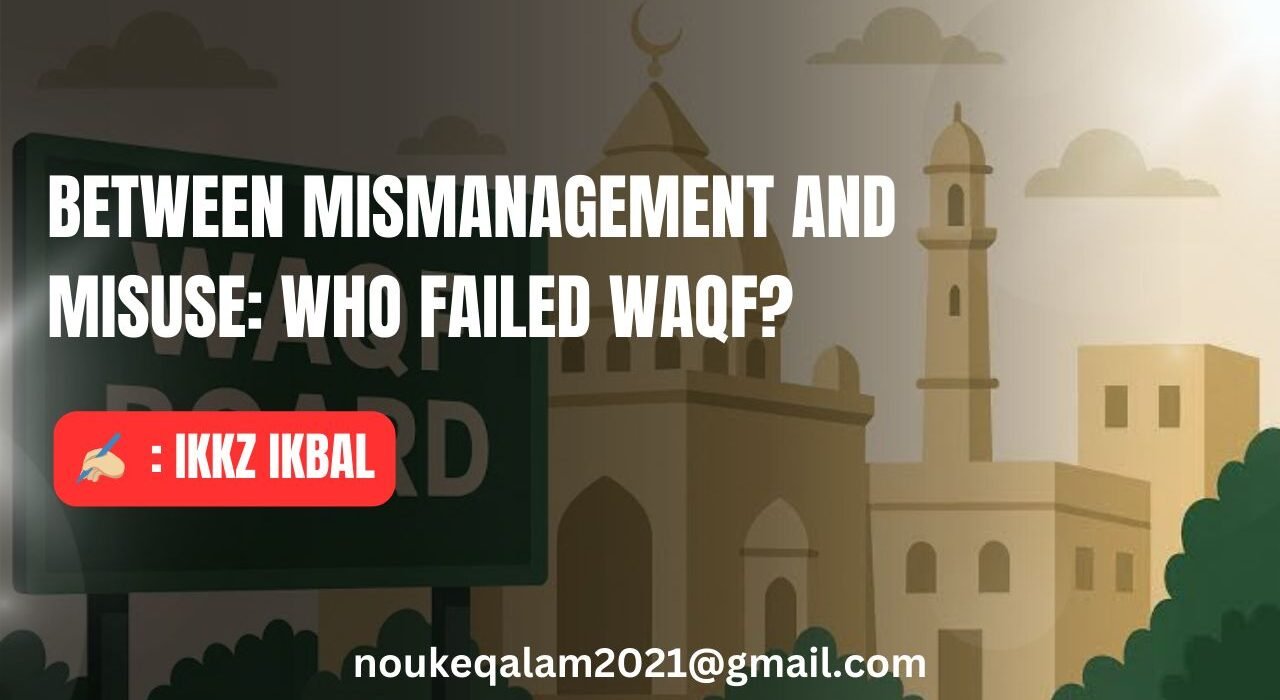There are laws that govern a nation, and then there are laws that subtly alter people’s lives, ideologies, and long-standing traditions. One such piece of legislation is the Waqf Amendment Bill, which was recently introduced and approved with little public protest. It is a policy paper for legal specialists and a reform document for the government, but for the common Muslim like me, it feels like a silent robbery of legacy—of voice, of land, and of trust.
The concept of Waqf has strong foundations in Islamic tradition. It is a sacred trust—a generous commitment of riches for the betterment of the poor and the advancement of education and religion—and it is not just about land or property. Waqf properties have been constructing orphanages, sustaining madrasas, funding hospitals, and feeding innumerable people without expecting anything in return for more than a thousand years.
However, the weight of an amendment now makes that legacy quiver. The goal of the Waqf Amendment Bill, 2023, is to increase government oversight over Waqf properties. It facilitates the government’s ability to “survey, take possession, or repurpose” Waqf land, supposedly for the benefit of the general people. However, the question of whose “public” it is is unavoidable. Whose “good” is it?
According to the bill the Waqf Board loses its power to assess properties that might become Waqf in advance of developers declaring them as such. Through this legislation the state has gained expanded capability to claim Waqf land aside from its designated purpose and simultaneously implemented provisions which limit religious independence. The nation spares no efforts to investigate temple or gurdwara developments yet maintains complete silence about Muslim endowment disassembling.
It is equally important to exhibit bravery when examining our own conduct.
Muslims bear part of the responsibility for the present situation which exists in our world. Throughout many decades Muslims delegated their sacred Waqf properties to politicians who kept them and numerous uninvolved trustees and corrupt boards. In silent observation we witnessed mosques transformed into personal properties which were subsequently acquired via secret deals and schools intended for our children deteriorated owing to abandonment. An external enemy gained strength because Muslims had let their spiritual defenses crumble away for too long.
Our behavior during this period included standing back instead of taking action while using useless slogans rather than meaningful action and opting to merely respond rather than create positive change. The single unifying purpose of serving the community and Creator became diluted by various internal divisions which people allowed between themselves including sectarian and linguistic and regional ones. We need to both accept our position of negligence by forgetting to lock our house then blame others for taking what is not theirs.
The 2011 Sachar Committee Report demonstrated that Waqf properties across India had a market value of Rs. 1.2 lakh crore. These properties faced several issues because of poor management combined with encroachments along with political indifference. The amendment weakens Waqf Boards by removing their decision-making power and transparency measures while providing control to others who remain more prone to use properties for personal gain.
According to the Constitution of India all communities maintain their right to run their religious matters (Article 26). Community management practices protected the Sikh Gurdwara Act and Hindu Endowments institutions yet Waqf properties alone experience government control through this amendment.
Waqfs represent a basic religious duty independent from political interests. Waqfs are established with the purpose that their benefits will continue sustaining people after the donor departs from this world. Donors put their hopes into the Waqf that God will consider this act as continuous charity sadaqah jariyah. Disturbing this vow of trust would violate the spiritual foundation of the community.
Now is not appropriate for making general complaints or demonstrations alone. The Muslim community needs both house cleaning and dignity restoration to create Waqf as a thriving force within our lives through transparency along with accountability and compassionate governance. Rights begin with demanding but they gain their value through our honorable actions.
The Waqf Amendment Bill could achieve passage into law through debates in courts alongside bureaucratic documentation of non-passage. The true essence of Waqf remains tangible for those who grasp its essence beyond legal definitions thus making their hearts feel the painful withdrawal of another element from our cultural legacy. Our identity becomes increasingly dimmed every time we lose another connection to our true heritage.
References:
Sachar Committee Report, 2006
Article 26, Constitution of India
The Waqf Act, 1995 (Original and Amendments).
Note: Ikkz Ikbal has a PG in Biotechnology and is Principal Maryam Memorial Institute Pandithpora Qaziabad. He X’s @IkkzIkbal






